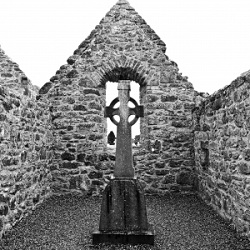Pat Robertson: Earthquake may be a divine sign
Body
Discussion
D. A. Carson on Generational Conflict in Ministry
Body
Discussion
Web Site Gospel Presentation
Discussion
Does your church have an inter-generational Sunday School Class?
Poll Results
Does your church have an inter-generational Sunday School Class?
Discussion
Liberty Becomes Largest Christian University With 62,000 Online Students
Body
Discussion
"Net-working" the Local Church

A look at the need
Several years ago, I remember a couple in the church we had attended that shocked the congregation by getting a divorce. They had been married almost twenty years, had five children, were active in attending all the church’s services on Sunday, going to Wednesday night Bible study, active in ministries, etc. By all accounts, everyone at church thought they were doing fine. Then out of nowhere, they got a nasty divorce where the wife took off and left the family and now has very little involvement even in the lives of her children. Needless to say, no one in that family is a part of that church any longer.
This is only one of multiple stories I could share of people who looked healthy externally when they showed up for church but eventually left their churches. They were besieged with various major spiritual problems that no one else in the church had a clue about. These issues have varied widely to areas such as adultery, children announcing to their family that they are gay, children running away from home, struggles with bitterness and anger, addictions such as alcohol and pornography, etc. Not limiting it to spiritual problems alone, I have also witnessed families struggling with layoffs, relocation, major health issues, vehicle issues, etc. These types of problems have caused enormous stress on families which result in spiritual strain. Many of these families were left to face these crises alone while the church found out too late about their burdens that needed bearing.
To be fair, I have seen individual members and whole congregations do an admirable job at stepping up to the plate to help those who are struggling either spiritually or physically and meeting these challenges as they come. Yet in each of these scenarios, instead of preventive discipleship, I have observed local churches take a reactionary approach to dealing with problems and issues that plague their congregations, acting only after a major calamity or church upheaval. For an example, why is it that churches that are having trouble meeting budget seem to be keenly interested in outreach and in the principle of financial stewardship? The reality of ministry is that the pastoral staff often has too little time to prevent, or shepherd through, every difficulty each person in their congregation faces. Often, pastors see the overwhelming burdens of their people (and I used to be one who thought this way) and think that the missing ingredient to these ministry challenges is the implementation of a new program or ministry to meet that need. I would argue that this proposed resolution is not adequate to meeting the problem.
Discussion
Do you believe pastors are specially called to ministry and that call carries with it some level of authority?
Poll Results
Do you believe pastors are specially called to ministry and that call carries with it some level of authority?
Discussion
Barna reports declining church attendance, Bible reading, volunteering among "born agains"
Body
Discussion
Church Planting Thirty Years Later

In 1982 my wife and I planted our first church in Philadelphia – Faith Independent Baptist Church. The long church name seemed awkward back then but I wanted to be sure people knew up front where I stood. Fresh from eight years of ministry training at fundamentalist schools, I was a committed independent, fundamental Baptist. As extra insurance to validate my IFB credentials, I often added “militant and separatist” as well. The church’s doctrinal statement enshrined a dispensational hermeneutic essential for correct interpretation, the pre-tribulational rapture as the next event on the prophetic calendar, and the King James Version as the official translation. As a church we were known more for what we were against than for who we were.
Fast forward to 2011 where in the same city I am now working with a team of elders to plant another church in a spiritual wasteland where we parachuted in with a few families but without a significant core group. After thirty years of church planting I claim no special expertise, offer no guarantees of success, and sense an even greater dependency upon the Lord to build His church. Similar struggles, resistance to the gospel remain.
This one-year-old church is elder led, non-denominational, non-dispensational, and uses the English Standard Version. Much has changed. Most remains the same. I would venture to add that what is essential has not changed. In areas where change has occurred, thirty years of ministry, of study, of relationships, and of experiences have conspired to bring me to the place I am today. For many years IFB was all I knew or cared to know. Now I find myself rarely at home in this fragmented movement of competing networks. I find myself increasingly on the outside looking in. This is my journey, but I’m glad I was not alone.
After planting a church in Philadelphia from 1982-1987 my family and I went to France and then Romania in church planting and pastoral training ministry. Those years spent overseas provided opportunities for fellowship with believers from different horizons and spared me the need to engage in many of the needless conflicts being fought in the States. There was less need to conform to others’ expectations of what it meant to be safely within the fundamentalist orbit.
Discussion